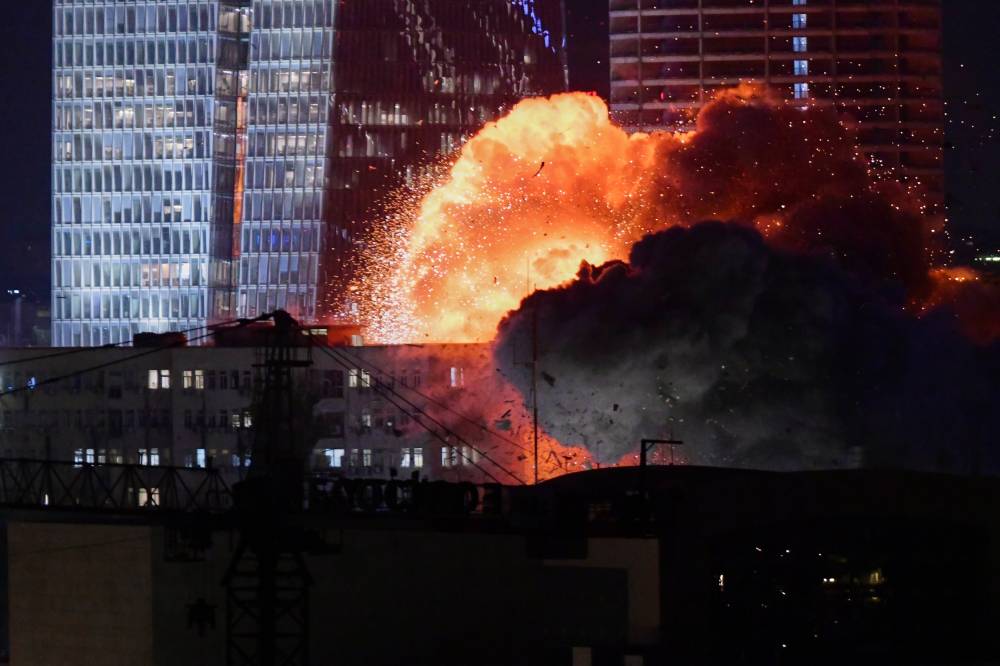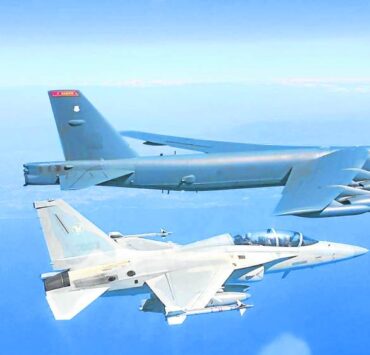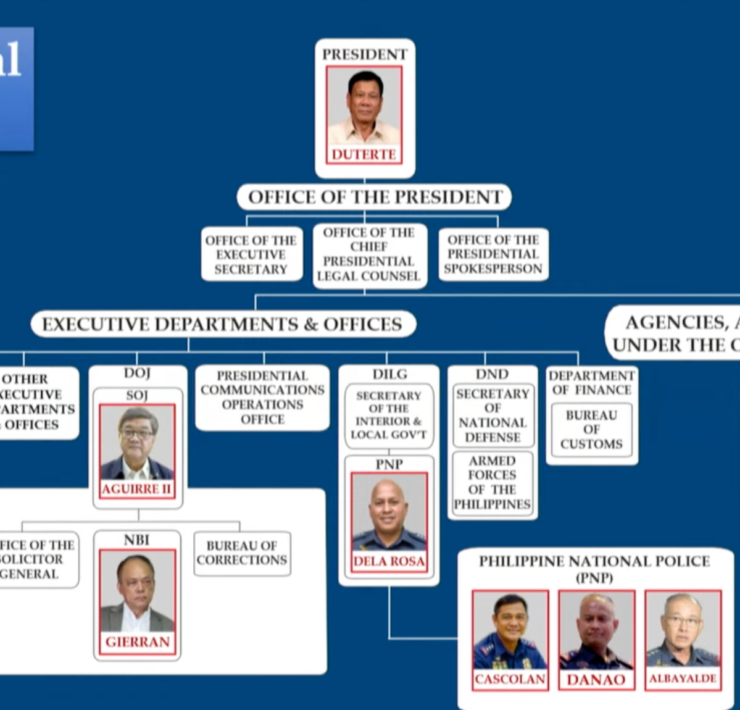Iran strikes back with missiles over Jerusalem, Tel Aviv

TEL AVIV/DUBAI/WASHINGTON—Iran launched retaliatory airstrikes at Israel on Friday night, with explosions heard in the country’s two largest cities, Jerusalem and Tel Aviv, following Israel’s biggest-ever military strike earlier that day against its longstanding enemy.
During its attack, Israel destroyed Iran’s huge nuclear facility in the city of Natanz and killed its top military commanders.
Casualties
Israel’s military said Iran fired fewer than 100 ballistic missiles in two salvos, with most intercepted or falling short. But air raid sirens sounded across Israel as authorities urged the public to take shelter.
The US military helped shoot down Iranian missiles, two US officials said.
Several buildings were struck in the Iranian counterattack, including an apartment block in a residential neighborhood in the city of Ramat Gan east of Tel Aviv.
In the city of Rishon Lezion also outside of Tel Aviv, rescue teams were searching the rubble of apartment buildings that were destroyed.
Another building in central Tel Aviv was also struck, causing significant damage to multiple floors.
Israel’s Channel 12 said two people were critically injured, eight moderately and 34 slightly from shrapnel.
Five Palestinians, including three children in the Israeli-occupied West Bank were killed, after Iran-backed Houthi militias in Yemen fired a missile which hit that area.
A man and a woman were also killed, Israel’s ambulance service said without providing further details.
Defense Minister Israel Katz said on Saturday Iran had crossed a red line by firing at civilians and will “pay a heavy price.”
US ‘complicit’
The Israeli strikes and the Iranian retaliation throughout Friday raised fears of a broader regional conflagration.
According to Amir Saeid Iravani, Tehran’s envoy to the United Nations, 78 people, including senior military officials were killed in Israel’s strikes and more than 320 people were wounded, most of them civilians.
Two regional sources said at least 20 Iranian military commanders were killed—among them, the armed forces chief, Maj. Gen. Mohammad Bagheri, and the Revolutionary Guards chief, Hossein Salami.
Iran also confirmed six of its top nuclear scientists had been killed.
Covert operations
Iravani accused the United States of being “complicit” in the attacks and said it shared full responsibility.
In a phone interview with Reuters, US President Donald Trump confirmed “We knew everything” about the Israeli attack plans.
As part of those plans, Mossad commandos had been operating deep inside Iran before the offensive, said an Israeli security source who also claimed that Israel established an attack-drone base near Tehran.
Furthermore, Mossad and the Israeli military mounted a series of covert operations against Iran’s strategic missile array.
The military said on Friday it bombarded Iran’s air defenses, destroying “dozens of radars and surface-to-air missile launchers.”
Iran’s nuclear program
Israeli Prime Minister Benjamin Netanyahu, who for decades has raised the alarm about Iran’s nuclear program, said on Friday he authorized the assault to prevent Iran from building nuclear weapons.
Israel and its Western allies have long accused Iran of refining uranium to levels suitable for a bomb. But Iran insists its nuclear program is only for civilian purposes.
UN nuclear watchdog International Atomic Energy Agency on Friday confirmed that the above-ground pilot enrichment plant at Natanz has been destroyed following Israel’s attack.
Israeli officials, however, said it may take some time before the extent of damage at Natanz becomes clear.
No more deal?
According to Israel’s UN envoy Danny Danon, intelligence had already confirmed that Iran would have produced enough fissile material within days to make multiple bombs.
Trump said it was not too late for Tehran to halt the Israeli offensive by reaching a deal on its nuclear program with Washington.
“I tried to save Iran humiliation and death. I tried to save them very hard because I would have loved to have seen a deal worked out,” Trump told Reuters.
But Tehran said negotiations with the United States are now “meaningless” after the Israeli strike.
Reuters, the news and media division of Thomson Reuters, is the world’s largest multimedia news provider, reaching billions of people worldwide every day. Reuters provides business, financial, national and international news to professionals via desktop terminals, the world's media organizations, industry events and directly to consumers.





















